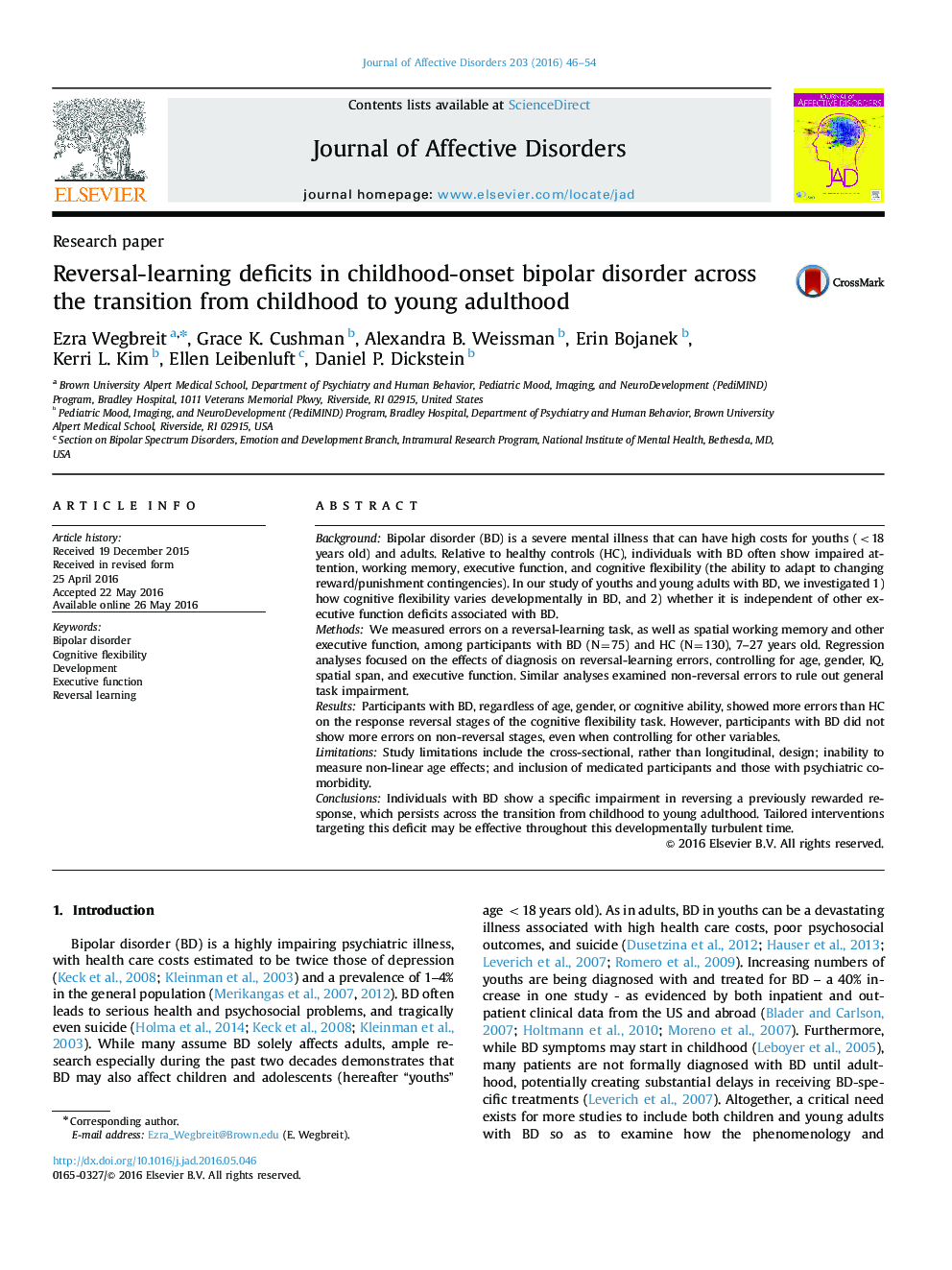| کد مقاله | کد نشریه | سال انتشار | مقاله انگلیسی | نسخه تمام متن |
|---|---|---|---|---|
| 6229851 | 1608122 | 2016 | 9 صفحه PDF | دانلود رایگان |
- Tested reversal learning in individuals with childhood-onset bipolar disorder (BD).
- Their ages (7-27Â yrs.) spanned developmental transition from childhood to adulthood.
- BD group showed deficits in reversal learning compared to age-matched healthy peers.
- Deficits independent of age, intelligence, and other executive functioning issues.
- No confounding influences of gender, race, medications, comorbidity, or mood state.
BackgroundBipolar disorder (BD) is a severe mental illness that can have high costs for youths (<18 years old) and adults. Relative to healthy controls (HC), individuals with BD often show impaired attention, working memory, executive function, and cognitive flexibility (the ability to adapt to changing reward/punishment contingencies). In our study of youths and young adults with BD, we investigated 1) how cognitive flexibility varies developmentally in BD, and 2) whether it is independent of other executive function deficits associated with BD.MethodsWe measured errors on a reversal-learning task, as well as spatial working memory and other executive function, among participants with BD (N=75) and HC (N=130), 7-27 years old. Regression analyses focused on the effects of diagnosis on reversal-learning errors, controlling for age, gender, IQ, spatial span, and executive function. Similar analyses examined non-reversal errors to rule out general task impairment.ResultsParticipants with BD, regardless of age, gender, or cognitive ability, showed more errors than HC on the response reversal stages of the cognitive flexibility task. However, participants with BD did not show more errors on non-reversal stages, even when controlling for other variables.LimitationsStudy limitations include the cross-sectional, rather than longitudinal, design; inability to measure non-linear age effects; and inclusion of medicated participants and those with psychiatric comorbidity.ConclusionsIndividuals with BD show a specific impairment in reversing a previously rewarded response, which persists across the transition from childhood to young adulthood. Tailored interventions targeting this deficit may be effective throughout this developmentally turbulent time.
Journal: Journal of Affective Disorders - Volume 203, October 2016, Pages 46-54
